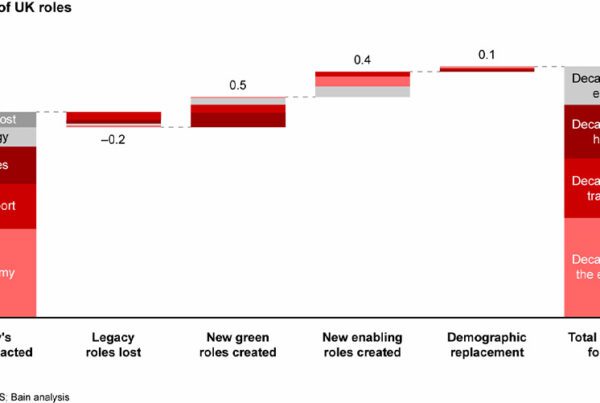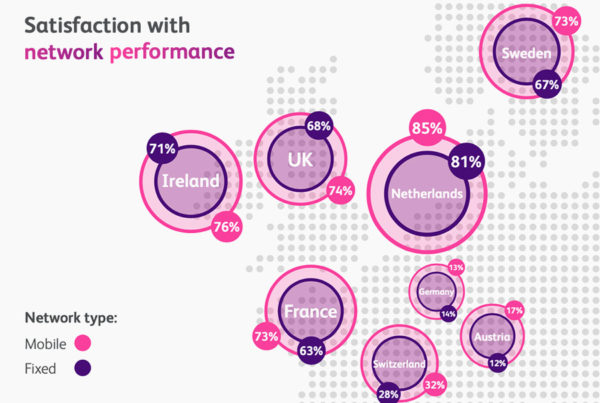Over the start of 2023, the UK’s economic outlook has continued last year’s volatility; as such, even though the economy seems to have narrowly escaped an official recession, many businesses are proceeding cautiously. Looking ahead, Eman Al-Hillawi, CEO of business change and digital transformation consultancy, Entec Si, advises how businesses can plan for change programmes – and the best ways to manage spending and facilitate change for good.
By the end of 2024, trend growth rates are projected to steadily return as inflation subsides, allowing growth to rise by an estimated 1.6% in 2025. Signs of this more promising future have already appeared throughout the first quarter of this year following the nation’s avoidance of a recession at the end of 2022 and the subsequent 0.7% increase in business investment, an indication that companies are gradually adopting a more optimistic outlook.
In times of financial hardship, where budgets may be restricted and funding streams are harder to come by, it can feel counterproductive for businesses to invest in transformations. However, this is when it’s important to do so. From operational improvements to creating a better environment for the workforce, investing in change can ultimately help to reduce everyday costs. Adaptability in difficult circumstances is pivotal so it is necessary for companies to understand why implementing robust change programmes will facilitate growth and how to manage their spending.

As the UK’s economy continues to recover from the pandemic and the political turbulence of last October, some businesses are now beginning to consider instigating change programmes and new projects. The renewed interest is understandable, given the decline in economic volatility, and if businesses are to continue prospering, it is key that they embrace change.
For instance, public sector organisations have historically been cautious with investing their limited capital budgets into transformations due to the level of scrutiny their spending is often under. However, throughout the pandemic they were forced to adapt to new ways of working and invest in modern digital infrastructure, whilst simultaneously taking care to be frugal when spending revenue budgets on day-to-day activities. Typically, this approach helps to reduce overall expenditure and enables businesses to be more cost-efficient by improving the function of their services. During times of economic uncertainty, it’s equally wise for private sector businesses to invest in small ways to deliver more efficient business practices to decrease everyday costs and provide greater opportunities for growth in the long run.
Unsurprisingly, such investments require companies to manage their spending effectively. Business transformations should be utilised to resolve a problem, boost a company’s efficiency or create new services which didn’t exist before. When faced with a difficult financial climate, rather than stopping transformation journeys completely – which could ultimately result in higher costs once the transformation resumes – it’s important for businesses to prioritise the areas which need improvement most and allocate funding accordingly.
Investing in innovation
Investments into technology and digital transformations are often a great way to boost growth quickly during times of economic difficulty. As the meteoric advancement of artificial intelligence (AI) and robotics continues, it is essential for companies to stay up to speed with the latest software and equipment to alleviate pressures on individuals and quicken responses for improved services.
Research has even shown the impacts which investing in intangible assets can have on performance, such as improving a company’s market position, financial position and its value in the stock market. In an inflationary economy, when hiring and retaining staff can be difficult, digital transformations can help to reduce attrition. Developing remote collaboration facilities to decrease worker travel costs is one such example. Fast-tracking technological advancements in tougher times can encourage customer engagement too – enhancing the automation of processes could help to cut business costs and the price paid by consumers as a result.
Another consideration companies should have when looking to implement transformations is to plan change around uncertainty in future. Examples of this include conducting risk assessments and pinpointing appropriate responses to fluctuations in the consumer confidence index (CCI) – the measurement of consumer trust in the economy. This latter point is particularly pertinent given the influence confidence has upon a business’s success. When the CCI score is lower than the 100-point baseline, it can stop growth in its tracks as exemplified in September 2022 when confidence hit a record low of -49.00 points. To avoid running into problems, companies should consider whether they have enough capital for investment in their business case. Astute organisations will reserve funds for transformations so that when consumer confidence drops and the economy becomes less certain, they will still be able to initiate vital change programmes.
Organisations should be strategic and proactive in their business planning to always ensure programmes will help them to respond to the constantly changing demands of consumers. Businesses should endeavour to be forward-thinking and progressive – acknowledging and acting upon the opportunities which transformations can provide is often half the battle.
Flexibility and agility are equally essential when it comes to planning for change within or ahead of economic hardship. Companies should avoid fixation on the ‘perfect implementation’ and instead foster an iterative approach to change. Doing so will not only help them to successfully manage their transformation journeys and spending but provide space for them to focus on optimising communications, engagement and stakeholder management. Achieving this and taking opportunities to view any changes from different perspectives to prioritise the developments needed, will give transformations the best chance of success.
Eman Al-Hillawi is CEO of Birmingham-based change consultancy, Entec Si.




